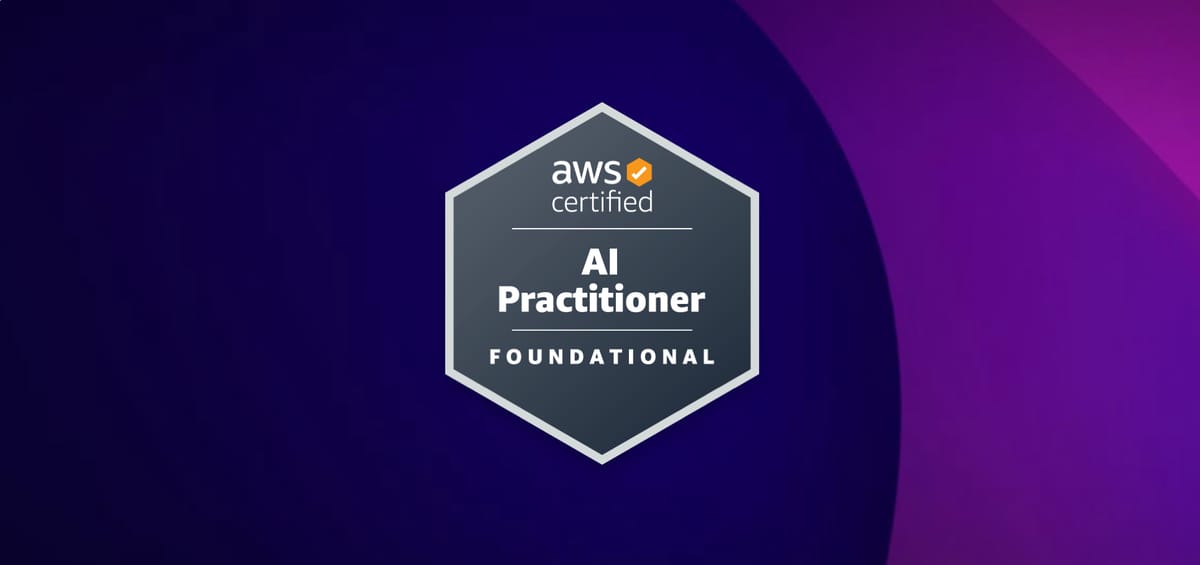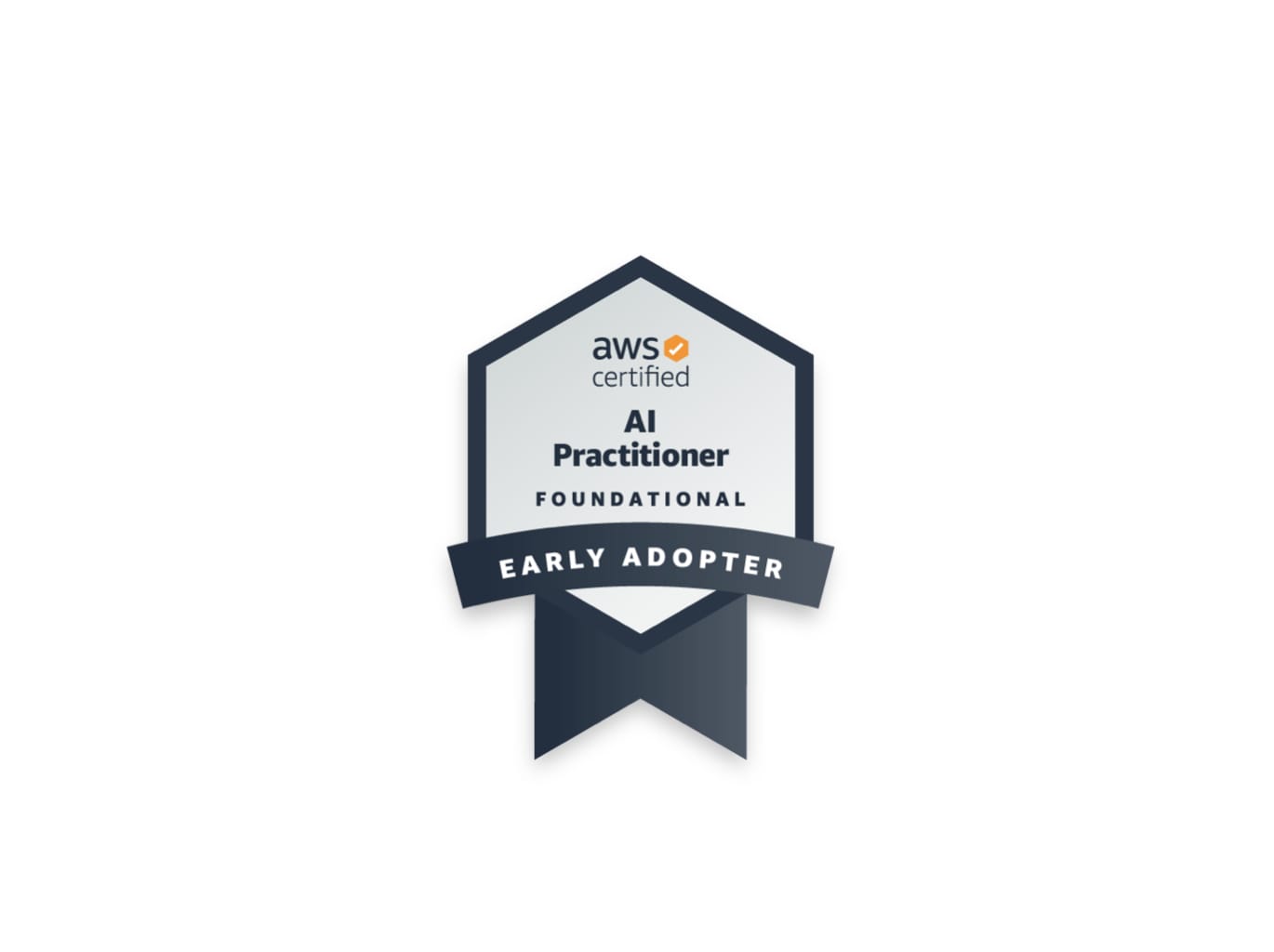AWS Certified AI Practitioner Beta - My Experience & Tips

TLDR
Though an interesting learning experience, and something I wouldn’t actively discourage those interested from, the beta AWS certified AI practitioner felt a little bit caught in the middle and isn’t something I’d recommend for most audiences. I think it examined things like model selection and broader AWS services including IAM and networking to be more in depth than necessary for most business or sales people, and not in depth enough to be practically useful for practitioners.
That said, I feel there is some value for those potentially interested in layering their knowledge and certifications and plan to undertake the next level of AI/ML AWS certification but haven’t taken a cloud or AWS exam before. For most other people, there is likely a better starting point.
What is a beta exam?
I covered this under my associate data engineer exam blog, and nothing really changed since posting that. Two things worth mentioning are that AWS are currently offering a free retake before February 2025 if you fail the exam and that they are offering an additional “early adopter” badge for those that achieve the certification during the beta phase or first 6 months after. An additional point that isn’t strictly beta related, but something I noted, was that the certification expires after 3 years as with all other AWS certifications, but where certified cloud practitioner is renewed by passing any other exam, I’m not clear on (and doubt) the same thing occurs for the AI practitioner cert.

What is the AI practitioner certification and who is it aimed at?
From the AWS website;
“The ideal candidate for this exam is familiar with AI/ML technologies on AWS and uses, but does not necessarily build AI/ML solutions on AWS. Professionals in roles such as sales, marketing, and product management will be better positioned to succeed in their careers by building their skills through training and validating knowledge through certifications like AWS Certified AI Practitioner.”
And I think this is where I will call out my main gripe with the exam - I’m not sure the content is completely aligned to the recommended candidate in that some of the topics I will call out below are areas I wouldn’t expect someone in sales or marketing and perhaps not product management to really get value from - model selection, s3 policies, VPCs, and Bedrock internet restrictions. I would at least acknowledge that the guidance on this being a certification not aimed for those building AI/ML solutions seems right, and that there is a good amount of content from the certification that is more aligned to the proposed audience such as understanding the differences between fine tuning and prompt engineering, so perhaps some of what I saw in the beta won’t actually be included in the generally available exam.
Exam prep
At the time I undertook the exam, there wasn’t much collateral beyond the exam guide and the SkillBuilder plan had cost involved. Given this was a practitioner level certification and I was already familiar with both AWS technologies and AI concepts and technologies, I decided to take the exam with no preparation.
Since then, Stephane Maarek has released his Udemy course. This looks like it has very good coverage of the topics examined and, though I can’t speak to its quality, I have had positive experiences with other courses Stephane has released and I would expect this to be a good resource.
My experience and recommendations
One thing I would call out is that the exam felt almost entirely generative AI focused and there wasn’t much coverage of things like natural language processing, classification, predictive techniques, or AI concepts outside large language model applications.
- Understand the AI deployment process (build, train, deploy) and AWS tools you can use aligned to these. I did also notice some specific questions around EC2 types for training so I would be aware of HPC and Accelerated computing types (especially Inf)
- Though it’s an AI certification, understanding some core AWS concepts is absolutely required. I would recommend, based on my exam experience, having more than just a conceptual understanding of IaM and S3 policies, VPCs, and security groups
- Understand the core AWS AI tools and technologies - I think the most common areas are related to having a reasonable understanding of Bedrock and Sagemaker (as well as when to use one over the other), but other things also included integration with broader services such as Connect, and knowing the use cases for Macie vs Comprehend vs Textract vs Lex
- Commit the Sagemaker features to memory - it’s less than 20 features by 6 categories, but I found that this came up in quite a few questions
- Prompt engineering is likely to come up more than once, so if you’re unfamiliar with AI prior to looking at this certification I would suggest reading up on prompt engineering concepts and approaches. I think this AWS site is a good place to start, but the questions are often phrased around determining the most effective approach so this is an area where comparing and contrasting methods is important
- Understand both fine tuning and pre-training of LLMs and the difference between the two i.e. when it’s preferable to conduct each
- I mentioned above that observed some specific, and more than surface level, AI questions around model selection and adjustment processes. I would suggest being familiar with
- BERT - and relevant applications such as filling blanks in sentences
- EPOCHS and adjusting them in line with observed over and under fitting
- Temperature - common word choices, consistency, etc. (context here, and AWS guidance here)